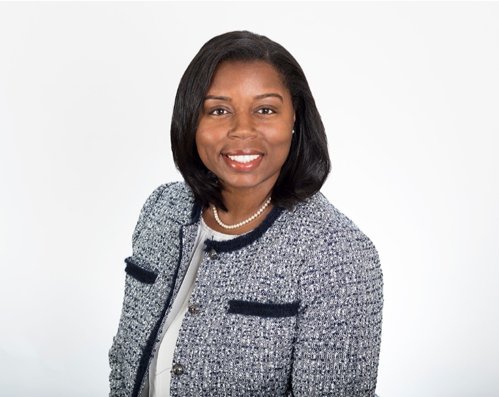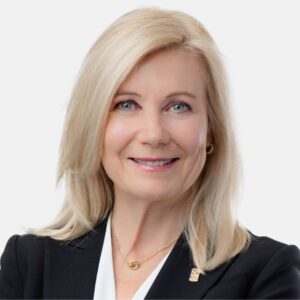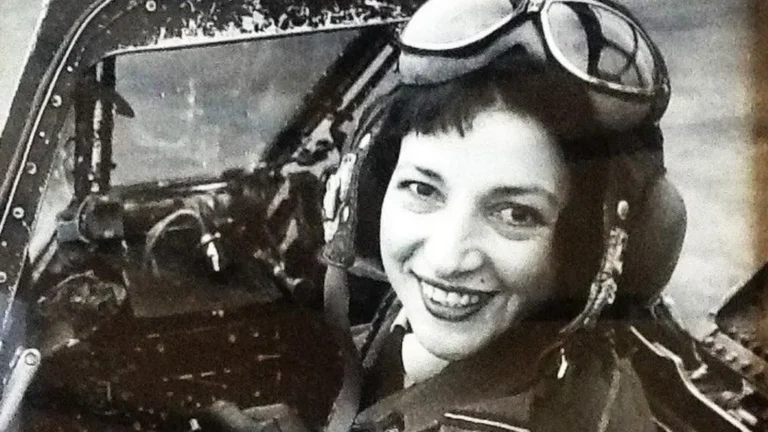Natasha Holiday – Co-Head & Managing Director of Infrastructure (East) at RBC Capital Markets
Our special guest for this episode is Natasha Holiday, Co-Head & Managing Director of Infrastructure (East) at RBC Capital Markets. Throughout our conversation, she offers invaluable insights on everything from navigating male-dominated industries to becoming a mom while maintaining a fast-paced, demanding career.
Tune in to this latest episode of The Honest Talk to hear Natasha’s candid reflections on her near-win in a fiercely contested political race in New York State and the pivotal moment that led her to choose a career in finance.

Catherine Clark: Natasha, you chose to work in a traditionally male-dominated profession. What inspired you to go into this field?
Natasha Holiday: It’s interesting; if you’d asked me in high school or college if I would be an investment banker, I would have laughed at you. It was nowhere on my radar. I had no one in my family who had been an investment banker or worked on Wall Street. But I think I’ve really focused on always trying to be true to my passions and exploring my interests and how I want them to align.
So, in high school and throughout my childhood, my mother delivered newspapers for a living in Cleveland, Ohio, which, in some ways, the climate is similar to Canada. But one of the things that I noticed is the infrastructure — the difference between the neighbourhoods that I grew up in and the neighbourhoods that we delivered newspapers in. My mother was using that landscape to paint a picture for me of what other opportunities look like: a lawyer, a doctor, a franchise owner.
But what I observed and took from it is that quality of life made a real difference. And that had a lot to do with infrastructure. So, when I got to the Kennedy School at Harvard, I knew that infrastructure was something that I wanted to play a role in. And I didn’t want to do it in a way that was fluffy; I wanted to have a real impact.
Catherine Clark: Speaking of impact, you started out your career in the political field. You actually ran for office.
Natasha Holiday: I did! It was the second-closest race in New York State, the 2010 primary race, and I lost by 106 votes.
Even as a young person, I straddled the public and private sectors. I worked in the private sector while also doing a lot of community work and having an opportunity to run for office. But I had to make a decision. I had to ask myself: Do you want to be good? Or do you want to be great? You can’t straddle two worlds and expect to be great at either.
After that 2010 race, I said, “Hey, look, I really feel like I have an opportunity here in the private sector in finance. I’m going to put my head down for 10 years and see where I end up.” Today, we’re in year 14 of that journey,
Jennifer Stewart: Would you consider running again? And does the current political environment intimidate you or influence your choice to run again?
Natasha Holiday: I think there’s definitely a possibility that I would run again. The current political environment is terrifying to me, and I think it’s definitely dissuading people with real talents and treasures to offer the public sector from entering the arena.
But at the same time, what draws my interest in how our government functions and who leads is my boys. I have a nine-year-old and an eight-year-old, and I want to make sure that this world does not continue to evolve on the path that we’re on right now. My motivation is to ensure that great leaders continue to have opportunities to lead because I really want to give my boys a future that’s much better than where we’re headed right now.
Catherine Clark: Can we follow up on that, Natasha? I guess one of the things that worries us, as parents, too, is the political situation around the world. How do we keep good people in the running?
Natasha Holiday: We have to support the good people who are there. That’s a part of it. To get more people to go into the arena, I think that it takes some level of self-determination around our ability to impact the future.
I hope we can also lower the temperature of the environment and the expectations around what public officials have to give in order to serve. And that’s something that we all can do, right? So, we can not listen, double-click on ads, or do everything that makes this environment toxic and unproductive.
Jennifer Stewart: We speak with a lot of women politicians here in Canada, and there is a theme that they all have somebody in their lives, for the most part, partners, that they lean on. You and your husband go away for a weekend each year and plan your life out. Can you walk me through how that started and how you maintain that touch point with two young kids and busy careers?
Natasha Holiday: It’s such a good touch point for us. And because we’ve been doing it for so long — we’ve been together 19 years now — it’s always a part of our ability to be accountable and supportive of one another in our visions and creating a shared vision.
We’re both type-A personalities, so we build spreadsheets and templates to support us and make our work more efficient. But we also do financial analysis, a 10-year outlook, and goals for the year. It’s just so helpful to have a North Star and to have your partner support you in pursuing it.
The other thing is that being married can become so transactional. Did you take out the trash? Did you turn in the books for the kids? Did you put the permission slip in? Did you pack the snack? If you don’t take that moment to step away, it won’t happen. So we’re very much committed to that. We’re so committed to it that we’re now at the point where we’re actually including our sons in the planning process.
One of the most pivotal moments for me was a couple years ago during the 10-year outlook when I saw that my oldest son was going to be 18. I was like, Oh my gosh. I have to rethink these next 10 years, right? I have to rethink everything I want to do in these next 10 years before I let him go into the world. I feel like the process really helps us in that way; it grounds us.
Catherine Clark: I want to go back to your career for a second because we know you have been highly involved in the idea that we need to focus on diversity, equity, inclusion, and belonging within our workplaces.
We were both touched by an article that you wrote about a very searing experience you had the summer after you graduated high school when you faced a real case of racism. Can you talk to us about that and how it impacted your decisions afterwards?
Natasha Holiday: I reflected on the story after the murder of George Floyd. As you know, the nation, the world, the globe was really challenged in that moment, as well as in the quietness of COVID.
I think sometimes storytelling is the best way to get people to see different perspectives and different life experiences. I just felt compelled to tell a personal story about being a teenager — being an 18-year-old with friends, eating dinner, and going out to figure out what you’re going to do next.
We were going to try to go to a movie, and we stopped at a gas station that was close by because we knew we weren’t going to make it to the movie in time. We were going to reposition ourselves and figure out what we were going to do, and the next thing we know, there were like seven police cars, guns drawn, lights blazing, asking us to put our hands up. And it’s a terrifying moment.
I will never forget the look on the faces of the young black men that we were with when they put their hands in the air. Fortunately, that situation was de-escalated by one of the lead police officers, and he was able to understand and see that we were just children. We were kids, we were 18 years old. We were having a fun Saturday or Friday night out. It could have ended really tragically.
I put that example out there because I think it’s more common than people know. And it is a part of the lived experience of Black people or people of colour in all parts of the world. We have to be more sensitive to that reality. As a senior business leader, you don’t associate that experience with the life of a Natasha Holiday. But it does.
Catherine Clark: When you look at what we’re doing in terms of changing how we talk about these issues within workplaces, especially as a woman and senior leader, are we doing enough?
Natasha Holiday: I think we’ve definitely made progress. My mother grew up in the civil rights movement in Birmingham, Alabama, in the 1950s and ‘60s. I have a personal understanding of how far we’ve come for women, people of colour, and underrepresented populations in general.
But what I also acknowledge is that we can easily lose ground. In some ways, what we’re trying to do is we’re massaging a culture that says that leadership looks like this. And it sounds like this. And that results in incremental improvements. But really, in order for us to shift the dynamic in the workforce, it requires bold action for long-lasting change. That commitment has to be reinforced over and over again because it’s actually against the social norm that has been established.
Jennifer Stewart: You’re a busy executive, a mother, a very active philanthropist, and a community member. What do you do for you when you want to recharge your batteries?
Natasha Holiday: Well, you know, it’s interesting; one of the things that that 10-year planning process showed is that every year, we made these health goals and never met them. We have kept making these health goals, gym membership, personal trainer, and all the things, but they have not become a priority.
One of my weaknesses is self-care and carving out time. I read a lot of books; audiobooks have been a saviour in this busy life. I love music. I enjoy downtime with my boys. I enjoy sports and art. We are collectors, so we spend time in galleries. Those are the things that I try to do for myself.
Catherine Clark: We’d love to finish with some advice that you have for women who may be listening. Women who are also navigating busy, challenging circumstances. What advice do you have for them?
Natasha Holiday: First, you have to be vocal; you have to ask for what you want. Sometimes, you have to paint the vision for others to buy into. For younger women, just make sure that you’re a master of your craft. Whatever your craft is, that’s a zero-sum game; it will take you a long way.
The other thing you have to do is be careful who you’re associated with from a managerial standpoint. I’ve been fortunate to have excellent managers who have always given me room and space. Part of that is because I built trust and always went back for guidance. You have to create that circle of trust around the people you work with; that’s super important.
And then, for women who are starting families, the best advice I was ever given is to hire as much help as you can afford. I see younger women who are starting families and struggling and want to do it all on their own. And they haven’t quite figured out the balance with their partner. My husband and I always tease each other about all the magic stuff — like the toilet paper, the school clothes, all the things that are the mental tax and burden that traditionally sit on women’s plates. If you can offload that, do it because you need your mental capacity to be focused on your craft.
(Note: This transcript has been edited for length and clarity.)









